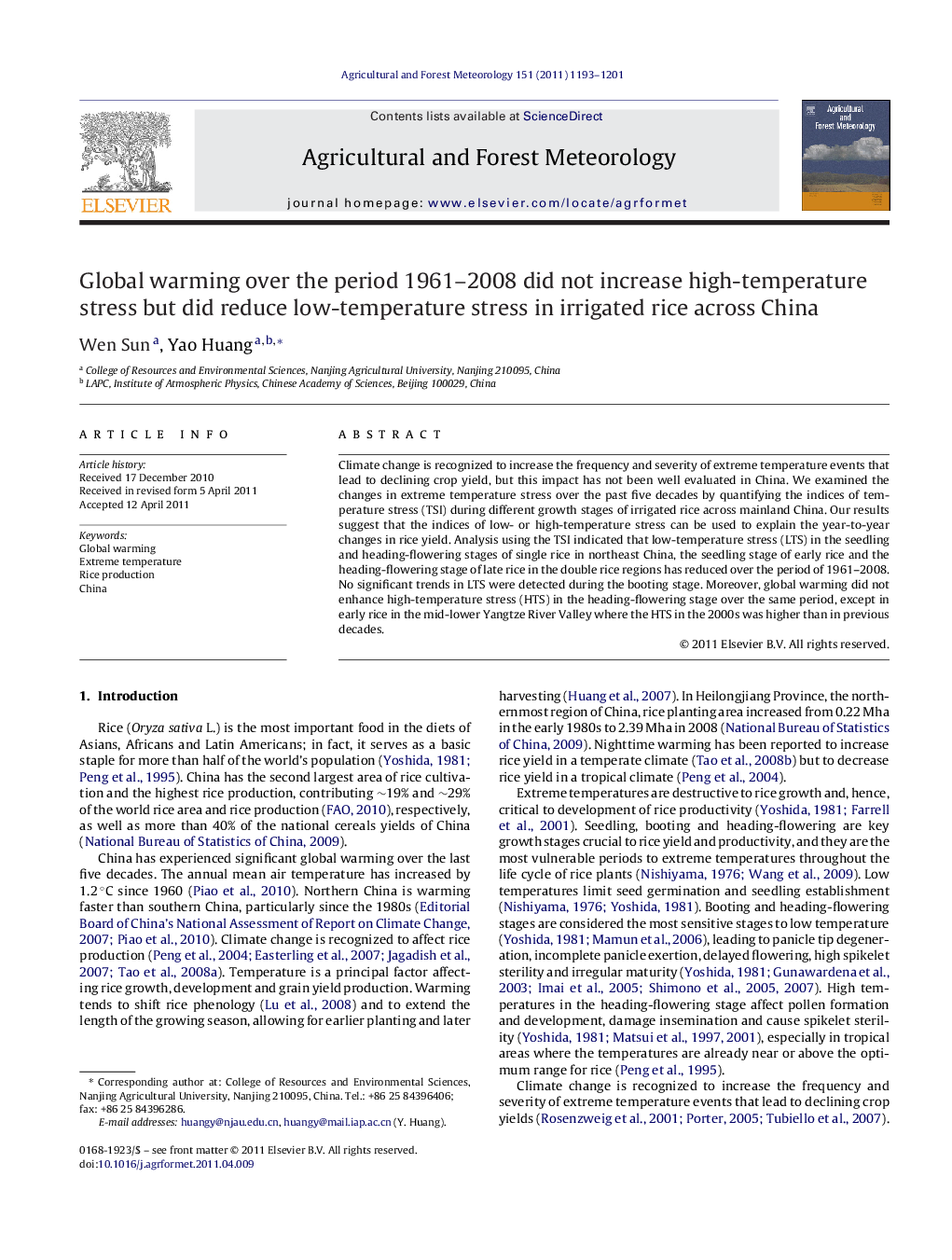| Article ID | Journal | Published Year | Pages | File Type |
|---|---|---|---|---|
| 81995 | Agricultural and Forest Meteorology | 2011 | 9 Pages |
Climate change is recognized to increase the frequency and severity of extreme temperature events that lead to declining crop yield, but this impact has not been well evaluated in China. We examined the changes in extreme temperature stress over the past five decades by quantifying the indices of temperature stress (TSI) during different growth stages of irrigated rice across mainland China. Our results suggest that the indices of low- or high-temperature stress can be used to explain the year-to-year changes in rice yield. Analysis using the TSI indicated that low-temperature stress (LTS) in the seedling and heading-flowering stages of single rice in northeast China, the seedling stage of early rice and the heading-flowering stage of late rice in the double rice regions has reduced over the period of 1961–2008. No significant trends in LTS were detected during the booting stage. Moreover, global warming did not enhance high-temperature stress (HTS) in the heading-flowering stage over the same period, except in early rice in the mid-lower Yangtze River Valley where the HTS in the 2000s was higher than in previous decades.
► China has the second largest area of rice cultivation and highest rice production in the world, and experienced significant global warming over the last five decades. ► We examined the changes in extreme temperature stress over the past five decades by quantifying the indices of temperature stress during different growth stages of irrigated rice across mainland China. ► Our results suggest that global warming over the period 1961–2008 did not increase high-temperature stress but did reduce low-temperature stress in irrigated rice across China.
